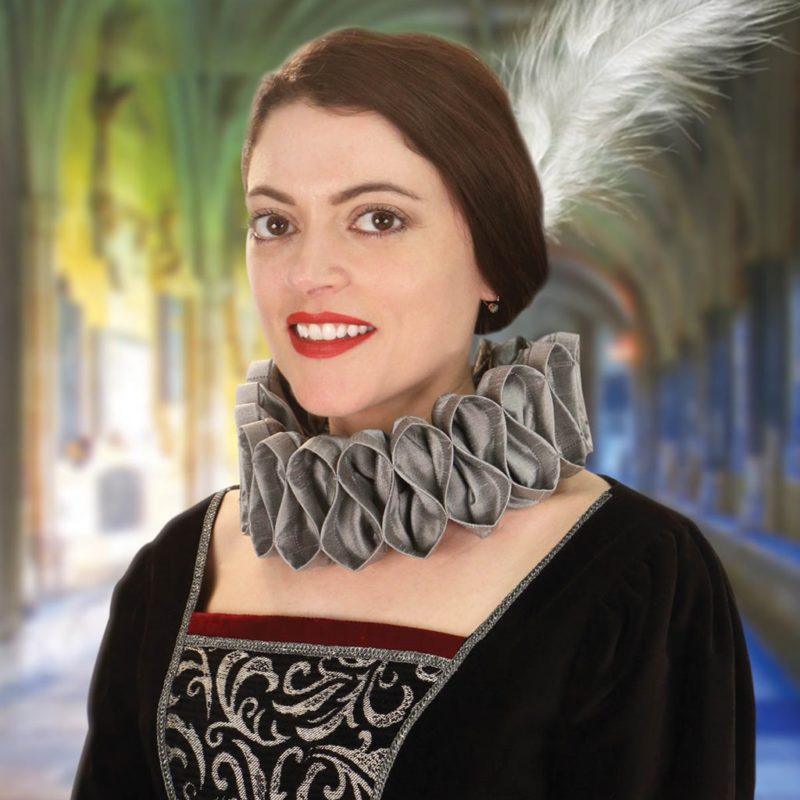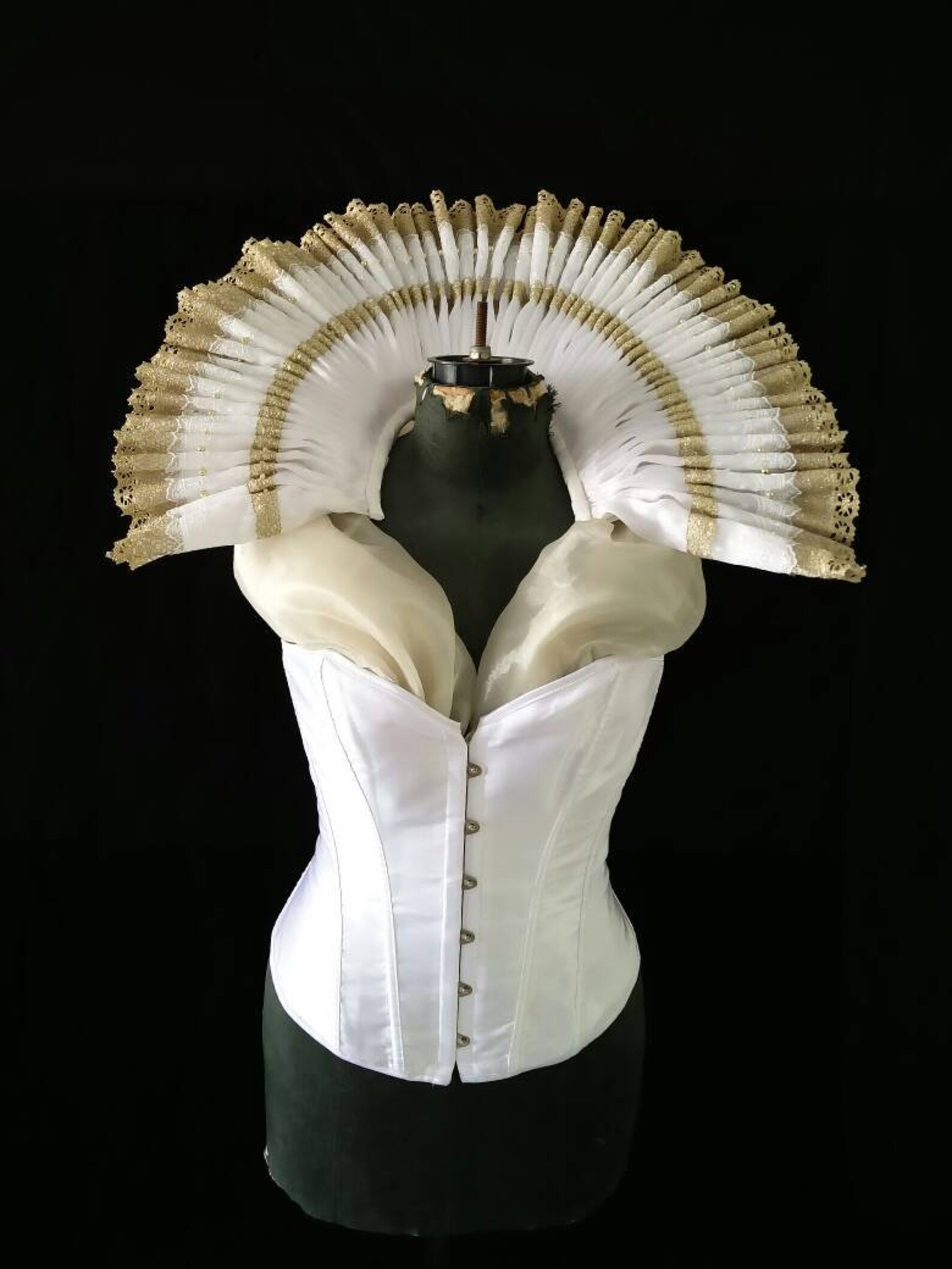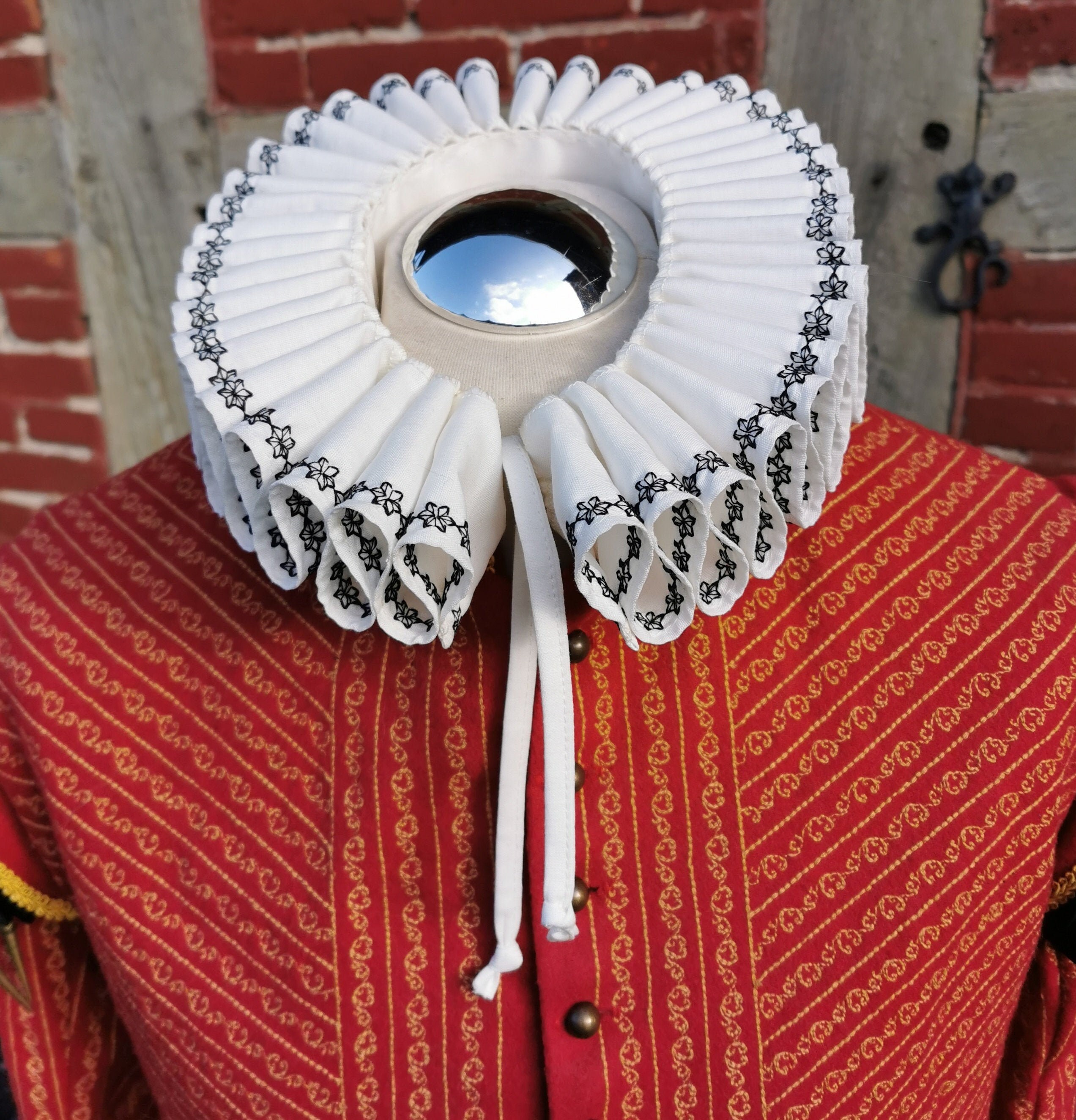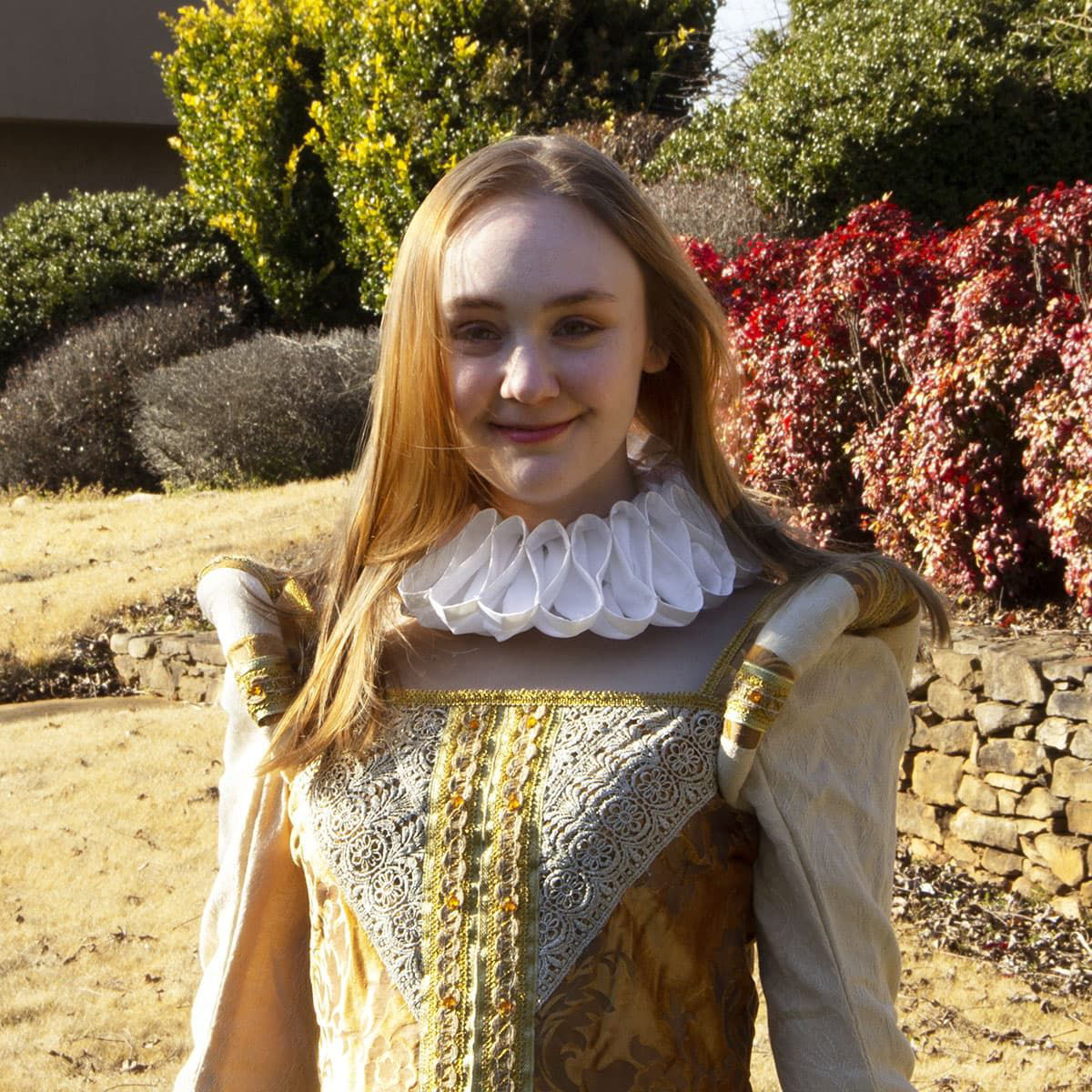
Elizabethean Ruff Collar Ye Old Renaissance Shop
Human Pharmaceuticals; Imaging and Radiology; Laboratory and Testing; Nutrition; Office Supplies; Pharmacy; Surgery; Treatment and Recovery; Vaccines; Equipment Show More.. Soft-E Elizabethan Collar for Cats and Dogs, Size M, 15 lb - 20 lb. Supplied By: Jorgensen Labs (J1003D) SKU 034776. Unit of Measure . Pack Type Each. Case Qty 1. More.

Elizabethan Standing Ruff Collar Open Ruff Supported by a Etsy Canada
Remedy+Recovery Elizabethan Dog Collar. Made in the USA, this Elizabethan collar comes in five sizes for a range of dog breeds. The walls are not only clear, but have holes for ventilation, which can help keep your dog more comfortable. You'll find padding at the base and edge of the cone, and it adjusts via three snap closures.

Elizabethan Collar Five Elizabethan collar, Metal working, Body adornment
The name "Lombard" is a derivation from two Proto-Germanic words: langaz (long) and bardaz (beard). It is reportedly a name that these men gave to themselves, which was "longbeards.". A more probable version is that the name was given to them by their enemies and neighbors, chiefly due to their distinctive long beards.

.collar .. 17th Elizabethan fashion, 16th century fashion, Renaissance fashion
What is a Ruff? The ruff, also known as the Elizabethan collar, was a prominent piece of clothing worn by men, women, and children. It was worn from the late Tudor era to the reigns of the Stuarts, roughly from the 1560s to the 1630s. It was known primarily for its popularity and use throughout England - hence, the Elizabethan collar.

Black fantasy ruffle neck elizabethan collar with delicate Etsy
Browse 15,751 elizabethan collar photos and images available, or search for dog elizabethan collar to find more great photos and pictures. Browse Getty Images' premium collection of high-quality, authentic Elizabethan Collar stock photos, royalty-free images, and pictures. Elizabethan Collar stock photos are available in a variety of sizes and.

Why Were Big Collars Such A Fashion Statement In The Elizabethan Era? Miniature portraits
The gray wolf of the Apennines (Canis lupus italicus) is Italy's national animal due to the legend of the founding of Rome that told of how two brothers, Romulus and Remus, after being raised by a she-wolf, founded the city.The Apennine gray wolf or Italian wolf is a subspecies of the gray wolf indigenous to the Italian peninsula. Thanks to some conservationist policies adopted in recent.

Elizabethan Era Ruff Elizabethan era, Ruff collar, Elizabethan costume
Elizabethan Collars (E-collars) are often necessary after your pet has a surgical procedure or if they have wounds or abrasions. This prevents them from gett.

Renaissance Ruff Elizabethan Collar Tudor Ruff Custom size Etsy
The Elizabethan Collar gets its name from mimicking the ruffles worn by wealthy individuals during the Elizabethan era and invented by Frank L. Johnson in 1962 after taking a thin sheet of plastic and tying it around a dog's neck. He then decided to call it the Elizabethan collar (e-collar) for the reason stated above.

Ruffled Collar Golden Queen Elizabethan Neck Ruff Victorian Etsy Ruffled collar, Victorian
The Elizabethan collar—nicknamed the E-collar and sometimes referred to as the "cone of shame"—is named after the ruffs worn by the wealthy in Elizabethan-era England. It was first patented in the United States as a protective item for pets in the late 1950s. Elizabethan collars can be used on dogs and cats alike, and are usually made.

Ruff detail of an Elizabethan era Elizabethan Collar, Elizabethan Era, Elizabethan Costume
An Elizabethan collar, E collar or pet cone (sometimes humorously called a pet lamp-shade, pet radar dish, dog-saver, or cone of shame) is a protective medical device worn by an animal, usually a cat or dog.. removing their collar might make nighttime quieter for the human members of the household.

Flickr Renaissance fashion, Elizabethan fashion, Fashion
An Elizabethan collar, E collar, pet ruff or pet cone (sometimes humorously called a treat funnel, lamp-shade, radar dish, dog-saver, or cone of shame) is a protective medical device worn by an animal, usually a cat or dog.

Black elizabethan renaissance ruffle collar by Mystic Thread / Model Elisanth / Photo by
Your Cat in a Cone: Elizabethan Collar Desensitization. Author: LeeAnna Buis, CFTBS Published: February 10, 2023. Updated:. It's stressful for them and can tear out our human hearts as we watch our little furballs struggle to manage it. So, it's a good idea to help your cat get comfortable with the cone before they have wear it. Even if.

Elizabethan collar Renaissance fashion, Elizabethan clothing, Reproduction clothing
The Elizabethan ruff is easily identified - a large, stiff, upright, usually lace collar that, in all honesty, looks uncomfortable and awkward. The Elizabethan collar that dominated fashion during the late 16th and 17th centuries, however, was an indicator of wealth, prestige, and social status.

Elizabethan Collar for People Elizabethan Era Ruff Elizabethan era, Elizabethan fashion
Two years after the start of the COVID-19 pandemic, key questions about the emergence of its aetiological agent (SARS-CoV-2) remain a matter of considerable debate. Identifying when SARS-CoV-2 began spreading among people is one of those questions. Although the current canonically accepted timeline hypothesises viral emergence in Wuhan, China, in November or December 2019, a growing body of.

Elizabethan Ruff Collar Museum Replicas
November 8, 2022 The Elizabethan collar is not the same as the ruff; here's what it means for cats and dogs. The Elizabethan collar is the famous "cone of shame" that dogs and cats must wear to heal after surgical treatment or treatment for a wound.

Elizabethan Fashion, Elizabethan Collar, Elizabethan Era, Villain Costumes, Ruff Collar
Elizabethan collars are used in companion animals primarily to prevent self-trauma and associated negative welfare states in animals.. Human Research Ethics Committee (HREC) (project 2019/064.